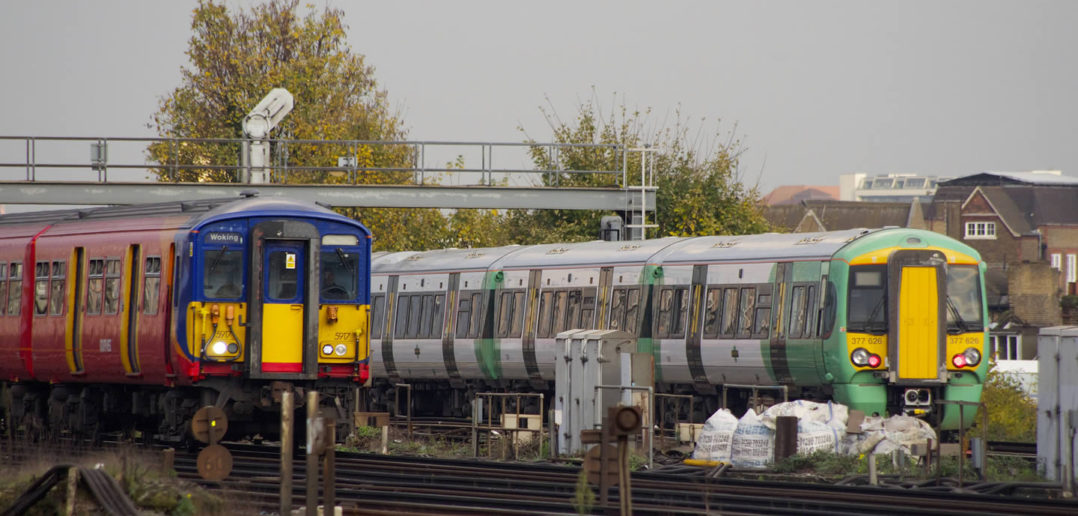At this time of year transport and haulage services are at their busiest. Although many other industries and companies are beginning to see contracts through to fruition and close deadlines for the season, transport services are getting busier as commuters wish to return home for the holidays and the demand for goods increases.
Adverse weather conditions and the increased volume of users can cause delays, accidents and a surge in ticket prices, causing some to question the efficiency of UK transport system. Added to that Southern Rail’s strikes over railway safety, and getting home for Christmas this year could prove to be difficult.
We examine the current state of transport and haulage in the UK and look at what is next for these essential sectors to improve, going into 2017 and beyond.
Rail network
Last week saw inconvenient striking from Southern Rail staff, forcing in excess of 300,000 commuters to seek alternative modes of transport to get to and from work. The strikes were over the rail company’s installation of automated door systems, which led train conductors to fear that their jobs could soon become automated. As Southern’s network incorporates the Gatwick Express service, it was not just commuters that were hit by the industrial action, but holidaymakers too.
The Southern Rail strikes are indicative of ongoing unsettlement within the transport sector in the UK and further industrial action is expected to chaos transport chaos in the new year.
Transports firms provide some of the most regularly used services in the UK, and they face continued pressure from passengers increasingly dissatisfied by late services and overcrowded trains. The inability for the UK rail network to survive snow, ice, or the dreaded “leaves on the line” continues to cause widespread anger from customers who do not feel they receive value for money on their fares.
An alleged 640 train services per day are cancelled, with those under the Govia umbrella (parent company to Southern Rail) being the worst culprits. Less than half of the services provided by these companies arrived within one minute of schedule.
Since it was set up at the beginning of December, the site sorryfortheinconvenience.co.uk has registered 397,891 apologies from transport providers, at the time of writing. The fact that this site exists poses a contradiction to the somewhat rosy picture painted by transport providers.
Haulage and courier services
Courier and haulage firms provide the backbone for much of the business in the UK, but a number of issues face the industry as we move into 2017, with the retention of drivers the most prevalent, according to research by Close Brothers Asset Finance. They found that 33% of companies understand they have to offer competitive benefits packages including bonuses, healthcare and annual pay rises in order to retain and attract staff.
Alongside this investment in their workforce, haulage firms have also started to focus on customer service as a key differentiator. While some companies have found success by offering customer support through social media channels like Twitter, the phone is still the most popular method of communicating with customers, followed by face-to-face and email, according to another Close Brothers survey.
Cars and congestion
With public transport services being recognised by the government as priority coupled with poor links in rural areas, it is no surprise that we remain a car-centric nation. Whilst the Mayor of London, Sadiq Khan, has introduced the Ultra Low Emissions Zone to combat some of the pollution problems, this does not restrict usage of cars. Instead it almost encourages more travel, once the toll has been paid, since commuters wish to get value for their money.
Target for improvement
In his autumn statement, Chancellor Philip Hammond made various policy announcements to address the growing dissatisfaction about the UK’s transport industry, which the TUC described as being some of the worst in the developed world. These included £1.1 billion to be spent on reducing congestion and upgrading roads and transport services and £450 million to go towards improving railway technology, which he hopes will lead to an improvement in rail services.
The ever-rising ticket prices and poor services offered by a number of rail firms has caused many, including Labour leader Jeremy Corbyn, to call for the renationalisation of the railways in the UK – a policy that has become increasingly popular with the British public.
While full renationalisation is unlikely under a Conservative government, London Mayor Sadiq Khan has made the case for a unified network of all suburban lines coming into London to be run under Transport for London (TfL) banner. And as Southern continues to show its inability to run a reliable service, Transport Secretary Chris Grayling will likely come under increasing pressure in the coming months to approve such a deal.




